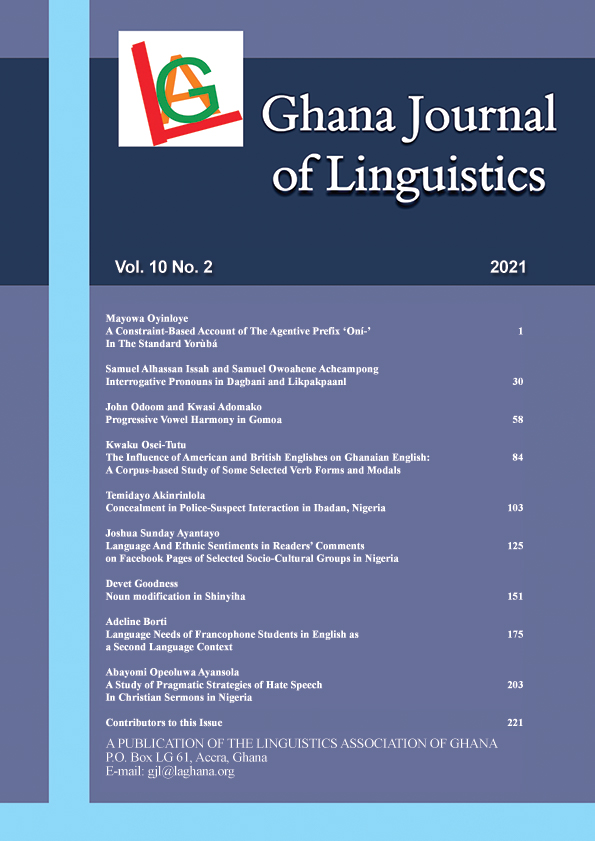Main Article Content
A Constraint-Based Account of the Agentive Prefix ‘oní-’ in the Standard Yorùbá
Abstract
When attached to vowel-initial nouns to derive agentive nominals, the prefix /oní-/ ‘owner/seller/doer/agent of’ in the Standard Yorùbá transforms to five morphologically related variants ‒ [al-], [el-], [ẹl-], [ol-], and [ọl-] ‒ whose transformation is induced by four distinct phonological processes: vowel deletion, consonant denasalization, vowel assimilation, and tone docking. The rule-based approach employed heretofore in the existing studies to account for the phenomenon appears unnecessarily complex and analytically deficient in explaining how the processes fit together. It is against this backdrop that the present study proposed a constraint-based analysis within the framework of Optimality Theory, which explains the transformational journey of the agentive prefix in a parallel fashion. The majority of the data were supplied by the researcher, being a native speaker of the language, while the rest were reproduced from the extant literature. Within the premise of the approach adopted, the paper argued that the well-formedness of the variants (allomorphs) of /oní-/ is generally governed by a set of alignment, markedness, and faithfulness constraints whose ranking uniformly and straightforwardly captures the four phonological processes. Therefore, the paper contended that rather than postulating multiple unrelated phonological rules to account for the variants of the prefix, a single hierarchy suffices: NO-HIATUS, NO-FLOAT[TONE], MAX(GRWD) >> ALIGN[VOC]-L >> IDENT(AFX) >> MAX(AFX). The paper concluded that the simplicity of a constraint-based analysis has some implication for language pedagogy in terms of learnability: a simple grammar is easier to learn than a complex one.






